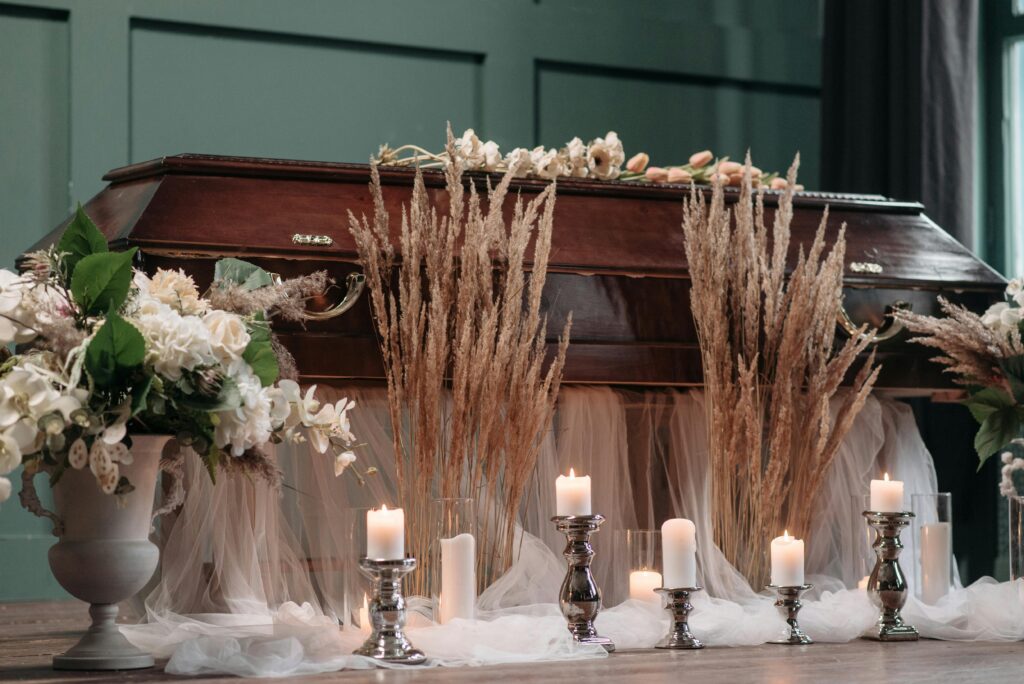Last updated on June 7th, 2024 at 10:48 am

Choosing between cremation and burial is a deeply personal decision that often reflects one’s cultural, religious, and personal preferences. This decision can also be influenced by financial considerations and environmental concerns. As each option comes with its own unique set of advantages and disadvantages, it’s essential to weigh them carefully to make an informed choice. In this comprehensive guide, we’ll explore the pros and cons of both cremation and burial to help you decide which option best suits your needs and beliefs.
Cost Comparison: A Practical Perspective
One of the most significant factors influencing the choice between cremation and burial is cost. Generally speaking, cremation tends to be less expensive than burial. Traditional burials typically involve higher expenses related to purchasing a casket, a burial plot, and a headstone, in addition to the costs of embalming and a funeral service. These elements can lead to substantial financial commitments that might not be feasible for everyone.
In contrast, cremation eliminates the need for many of these expenses. The process involves the use of a cremation chamber, which is considerably less costly than a burial plot and casket. Moreover, families can choose simpler urns or scatter ashes in meaningful locations, further reducing expenses. You can easily find affordable cremation services that offer personalized options to fit your budget and preferences. While direct cremation without service is the most affordable option, even when a memorial service is included, it remains more budget-friendly compared to a traditional burial.
Environmental Impact: Ecological Considerations
The environmental impact of cremation versus burial is another critical factor to consider. Traditional burials often involve the use of embalming fluids, non-biodegradable caskets, and concrete vaults, all of which can contribute to environmental degradation. The land used for cemeteries is another ecological concern, as it requires maintenance and can limit natural habitats.
Cremation, while often perceived as more environmentally friendly, is not without its ecological footprint. The process emits carbon dioxide and other pollutants into the atmosphere, which can contribute to air pollution and climate change. However, advancements in technology are making cremation more eco-friendly. For example, some crematoriums now use filtration systems to reduce emissions.
Green burials are becoming an increasingly popular alternative for those concerned about the environment. This method avoids the use of embalming fluids and non-biodegradable materials, focusing instead on natural decomposition. Biodegradable coffins or shrouds are used, and graves are marked with simple stones or plants rather than elaborate headstones. Green burials can provide a more sustainable option, allowing the body to return to the earth in a natural cycle.
Flexibility and Memorial Options: Honoring Your Loved One
Cremation offers a wide range of options for memorialization, which can be particularly appealing for families looking for flexibility. Ashes can be stored in urns, scattered in meaningful locations, incorporated into jewelry, or even used in creating art. This versatility allows families to personalize the way they honor their loved ones and can accommodate various cultural and personal preferences.
Burial, on the other hand, tends to offer a more traditional approach to memorialization. A gravesite provides a permanent location for family and friends to visit, reflect, and pay their respects. Funeral services can be held at the gravesite, offering a tangible place for mourning and remembrance. For many, having a specific location to visit can provide a sense of continuity and a place to channel their grief.
While traditional burials may lack the flexibility of cremation, they offer a sense of ritual and permanence that many find comforting. The choice between these two methods of memorialization often depends on the family’s preferences and the deceased’s wishes. Both options provide meaningful ways to honor a loved one, and the decision is ultimately a personal one.
Religious and Cultural Considerations: Respecting Beliefs
Religious and cultural beliefs play a significant role in the decision between cremation and burial. Many religions have specific guidelines and traditions regarding the handling of the deceased, and these must be respected. For example, in Christianity, particularly among Catholics, burial has traditionally been preferred, although the Church has become more accepting of cremation over time.
In Hinduism and Buddhism, cremation is usually the favored practice, aligning with beliefs about the soul’s journey and the impermanence of the physical body. Judaism traditionally mandates burial, viewing it as a way to respect the sanctity of the body. However, some reform branches are more accepting of cremation today.
These religious and cultural considerations are paramount and often guide families in their decision-making process. It’s essential to consult with religious leaders or cultural advisors to understand the acceptable practices fully. By aligning the choice with these beliefs, families can ensure that they honor the deceased appropriately and provide comfort to those who share these traditions.
Personal and Emotional Factors: Meeting Individual Needs
Ultimately, the decision between cremation and burial often comes down to personal and emotional factors. Each individual’s preferences and values play a crucial role in determining the most suitable option. Some may prefer the idea of cremation due to its perceived simplicity and flexibility, while others might find solace in the traditional aspects of burial.
Family dynamics can also influence the decision. For instance, if family members live far apart, cremation might provide a more convenient option for distributing ashes or holding memorial services in different locations. Conversely, a family that values gathering at a single gravesite might lean towards burial.
The emotional aspect of this decision cannot be understated. Choosing a method that aligns with the deceased’s wishes can provide peace of mind and a sense of fulfillment. Open communication within the family about preferences and desires can facilitate a decision that honors the memory of the loved one in a meaningful way.

Choosing between cremation and burial is a personal decision influenced by cost, environmental impact, flexibility, religious beliefs, and emotional needs. Both have unique benefits and challenges. By considering these factors and discussing with loved ones, you can make an informed choice that honors the deceased and comforts the family. Whether burial or cremation, the goal is to remember and cherish a life meaningfully.






